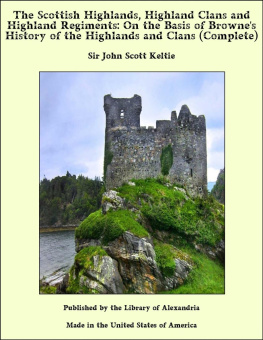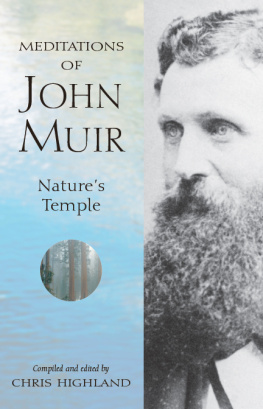SCOTTISH MOORLAND SCENERY.
The scenery of the less cultivated parts of our native Scotland may, generally speaking, be said to be checkered, as human life is with its events; for as, during our pilgrimage here on earth, evil continually succeeds good, and good evil, so are beauty and deformity seen to alternate with each other on the simple face of Caledonia. A long stretch of dreary and uninteresting hill country is often found to extend between two rich or romantic valleys, so that the lover of nature has to plod his weary way from the one to the other over many a mile of sterile desert; and, if he be a pedestrian, through many a burn, and many a slough too, with little to disturb him, save the sudden whirr of the grouse, as he bounds off through the air with the velocity of a cricket-ball,or the sharp frisp of the snipe, as he rises like the cork from a brisk bottle of champagne,or the wailing teeweet of the green plover, who, like some endless seccatore, most perseveringly follows his track, unceasingly boring him with his dull flapping and his tiresome cry.
When not broken in upon by any such incidents, these wildernesses are sometimes rather valuable to a solitary traveller. They afford him time for rumination whilst he is traversing them. They give him leisure to chew the cud of reflection, and he is thus enabled to digest the beauties of the valley which he has last devoured, before he proceeds to feast upon the charms about to be presented to him by that to which he is hastening. But whatever may be the advantages to be derived from journeying in any such single state of blessedness, I am disposed to think that the man who has a cheerful companion or two associated with him in his pilgrimage, will not be much inclined to wish them absent in such parts of the way; and as I do not think that either his moral or his physical digestion will be in any degree impaired by society, I am quite sure that his intellectual enjoyment will be thereby much increased.
My own experience convinced me of the truth of this one fine autumnal morning, when, in company with two friends, I left the romantic valley of the Findhorn, to cross the moorlands towards Grantown, a village which may be called the capital of Strathspey. The sun that rose upon us, as we took our staves in hand to begin that days walk, had continued to display a brighter and merrier countenance than any, perhaps, which I had ever seen showing face within the precincts of this vapour-girt island of ours. Yet vain were his friendly efforts to throw a glow of cheerfulness over the brown heaths and the black plashy bogs almost entirely covering the tame unmeaning undulations of the country before us. A scene apparently less calculated to furnish food for remark or conversation, can hardly well be conceived. But when the imagination is not altogether asleep, a very trifling hint will set it a working; and so it was, that the innumerable grey, ghastly-looking pine stocks of other years, that were everywhere seen pointing out of the peat-mosses, from amidst tufts of the waving cotton grass, and wiry rushes, and gaudy ranunculuses, quickly carried our minds back to former ages by a natural chain of connection, filled them with magnificent ideal pictures of those interminable forests which completely covered Scotland during the earlier periods of its history, and immediately furnished us with a subject for talk.
Author.You see yonder hill, called the Aitnoch. Although it is, as you may easily perceive, the highest in all this neighbourhood, yet an extensive plain on its summit, almost entirely peat-moss, is so thickly set with the stocks and roots of pine trees, such as these you are now looking at, and all fixed, too, like these, in the growing position, that, if the boles and branches were still standing on them, it would absolutely be a difficult matter for a deer, or even for a dog, to force a passage through among them.
Grant.I should like much to mount the hill to examine the plain you speak of. Well as I am acquainted with this north country, I never heard of it before.
Author.It will cost us little more than the additional fatigue created by its rather rough and steep ascent to do so, for it is not quite an hundred miles out of our way.
Clifford.Phoo! we are not to be tied to ways of any kind. Let us climb the hill, then, by all means. But, to return to what you were talking about, can you tell us how, and for what purpose, these vast forests were annihilated?
Author.The charred surfaces which most of these stocks and roots still exhibit sufficiently prove that fire must have been the grand instrument of their destruction. The logs which originally grew upon them, but which are now found lying horizontally under the present surface, all bear testimony to the same fact in a greater or lesser degree. Many of these, indeed, when dug up, present a very curious appearance, the nether part being left almost entire, whilst the upper side has been hollowed like a spout. This must have been effected by the flames, which naturally continue to smoulder on the upper surfaces of the fallen trunks, whilst the moisture of the ground where they fell extinguished them below.
Clifford.Come, that is all very well as to the how; now, let us have your wherefore














